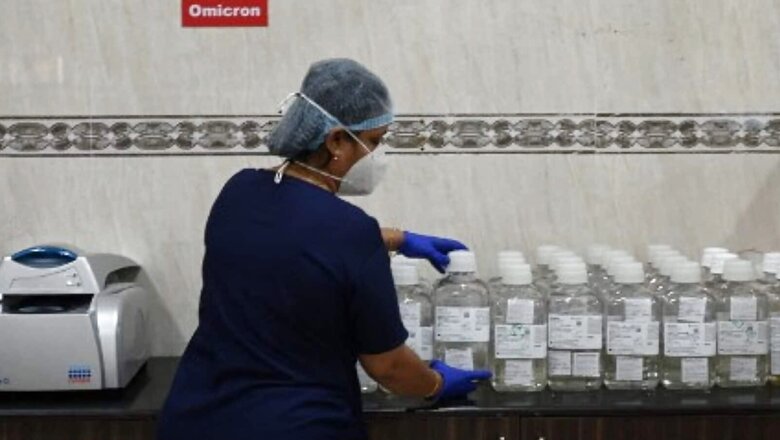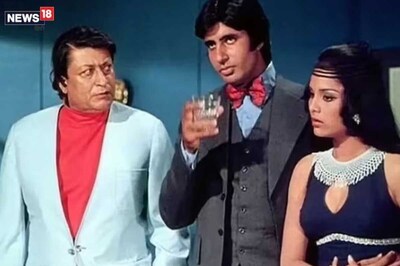
views
Amidst concerns over the new Omicron variant that has so far infected nearly 33 people in the country, the member of Karnataka’s genomic surveillance committee, Dr Vishal Rao, said it will be “incorrect and premature” to take the heavily mutated variant lightly, assuming that it’s just a mild virus.
Karnataka was the first state to report two cases of the new variant early this month.
“As the numbers increase, the virus may exhibit more virulence,” Rao said, warning that “concluding that Omicron shows no symptoms or mild symptoms should be considered as anecdotal till this is proven by substantial data.”
While the state reported low Covid-19 cases to around 320 in the last 24 hours, and two deaths, the state government is closely monitoring the everyday situation before announcing new restrictions.
Rao, who is also the dean for the Centre of Academic Research at Bengaluru-based HCG Cancer Hospital, said it is important to protect the vulnerable population and front line workers at this juncture.
“Third booster dose is imminent at this juncture and several new studies have emphasised this requirement. At this point, vaccines are the best and the only tool we have,” Rao stressed.
He also said it is important to encourage “transmission of appropriate behaviour — which is vaccination 2 doses and Covid-19 appropriate behaviour.”
Jump in Cases in South Africa
The latest data from South Africa shows there is around 25% jump every day in ICU admissions and requirement of ventilators, he said.
“The virus is showing higher transmissibility, escaping immune mechanisms and has started increasing ICU admissions in SA recently,” he added.
He explained South Africa saw a massive jump in Covid-19 cases in the last one month from 280 cases every day to 16,000 cases every day. “Their data also shows that people who were previously infected with Delta have also got infected with Omicron, showing previous infectivity does not confer protection against Omicron completely.”
He further said it will not be wise to assume that a higher number of fully vaccinated people in India are protected enough from the new variant.
Latest Study Shows it Has Re-Emerged: Dr Rao
Rao said by now it has been seen that “the virus that caused the first wave took two weeks to enter the system (ACE2 receptors in the human body) whereas Delta took just one week and now, Omicron could take less than a week potentially.”
Omicron has shown no resemblance to alpha, beta, gama or any other known coronaviruses. A study says this heavily mutated virus was first spotted in 2020 and now it has re-emerged.
On November 11, South Africa had first picked up Omicron following which, in a couple of months, the World Health Organization labelled it as a “variant of concern”.
“Usually, the labelling is not that fast. WHO first classifies new virus strains as ‘variant under investigation’, then ‘variant of interest’ and later ‘variant of concern’, depending on its behaviour.”
“But within a span of two weeks, they have classified this as a variant of concern, which has taken the world by surprise,” he said while adding that “it took a couple of months for the Delta variant to be labelled as a variant of concern. They must have found some capabilities in genomic study that the world needs to be cautious about.”
He further said the latest studies have shown that the virus has potential for 40-fold reduction in vaccine immune mechanism against the virus strain in the first wave.
Read all the Latest India News here


















Comments
0 comment